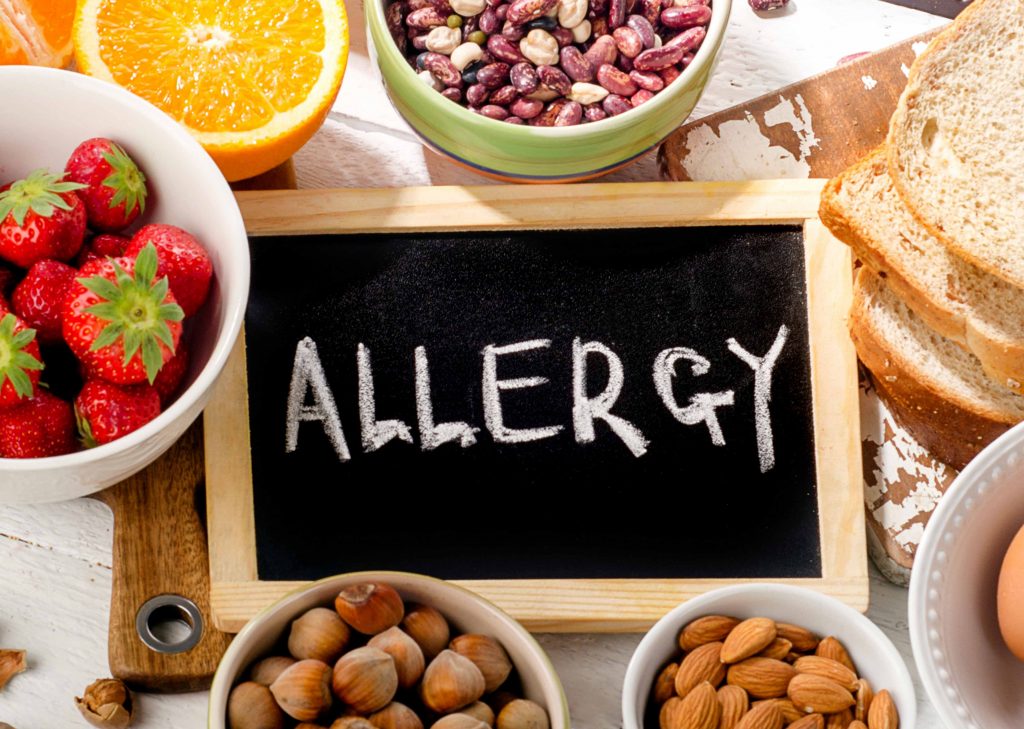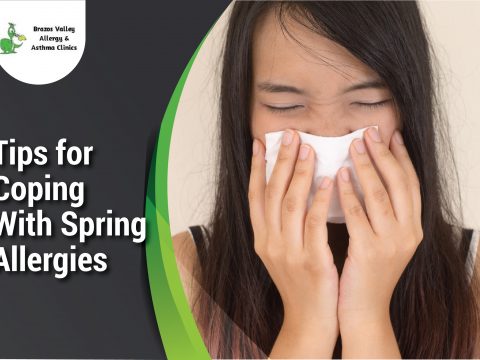- 979-485-9287
- office@bvallergy.com
-
 979-251-7804
979-251-7804
Keeping Kids Safe with Food Allergies at School

Everything There Is To Know About Immune Deficiency
July 29, 2019
Occupational Asthma
August 19, 2019Summer is almost over and children will be going back to school. I know that this back-to-school season is notoriously stressful for parents. This is especially true for those who have children with food allergies. These parents get anxious as to how their kids can stay safe at school knowing that they are more prone to get food allergies without their supervision. However, there are ways to keep children protected from food allergies even if their parents are not around. It just takes organization, preparation, and education to do so. If you have a child with food allergies, keep reading to know more about how to protect your child from food allergies when he or she is at school.
Quick Overview About Food Allergies

For most of us, eating peanuts is normal. However, for someone with a food allergy, eating peanuts can be dangerous and life-threatening. Food allergy is a medical condition in which exposure to certain food triggers a harmful immune response. More than 170 foods have been reported to cause allergic reactions. The eight major allergens that are mostly responsible for serious allergic reactions in the United States include milk, egg, peanut, tree nuts, wheat, soy, fish, and crustacean shells.
Some of the most common symptoms of food allergies include itching of the mouth, hives, dizziness, nasal congestion, swelling of the lips, and abdominal pain. It is also important to note that in some people, a food allergy can trigger a severe reaction called anaphylaxis which requires immediate treatment. According to a 2013 from the Centers for Disease Control and Prevention, the percentage of children with food allergies increased by approximately 50 percent between 1997 and 2011. Furthermore, researchers estimate that 32 million Americans have food allergies, including 5.6 million children under age 18. This means that 1 in 13 children is allergic to certain food. And honestly, this number is quite huge.
Many children with food allergies bring lunch or snacks from home to avoid life-threatening situations. Some schools designate a “safe zone” where common allergens are not allowed and to protect children from allergic reactions. Surprisingly, the majority of food allergy reactions do not happen at school canteens or cafeteria. It happens in classrooms because of food-based class projects, food brought in class for celebrations, or by food shared by a classmate.
So, what can parents do to protect their children from food allergies at school?
Tips on How You Can Keep Their Kids Safe with Food Allergies at School
I know you are starting to feel anxious now that school is about to start. When your child has food allergies, you might feel concern about sending him or her back to school. You might even wonder about who’s going to keep your child safe from the allergens he or she might get inside the school premises. To help you protect your child, here are some tips you can follow to keep your kids with food allergies safe at school:
-
-
Establish effective communication.
-
It is better that you communicate your child’s allergies with the people in school or those that your child constantly interacts with. This includes your child’s classmates, the principal, the teacher, the school nurse, and the staff in the cafeteria. If it’s possible, make sure that the maintenance staff, transportation staff, and the parents of your child’s classmates know about your child’s food allergies. These people can help manage your child’s exposure to food and help during emergency situations.

-
-
Provide the school with proper medications.
-
If you have a child with food allergies, you are already equipped with the right knowledge on what to do when emergency situations occur. However, you can’t be with your child every minute of the day, especially when your child is at school. But what you can do is to provide the school with the proper treatment and medications when your child is exposed to allergens. Make sure that you discuss with the school staff the allergy action plan, where to keep your child’s prescribed epinephrine, and who will administer it during an emergency to ensure that your child will be safe regardless if you’re not around.
-
-
Send the teacher a box of “safe snacks”.
-
As mentioned earlier, most of the food allergy reactions happen inside the four walls of the classroom. As a parent, you might worry about your child’s safety when his or her classmates bring food during birthdays or other occasions since you don’t know the ingredients included in the food. It will be beneficial if you send the teacher a box of “safe snacks” to keep on hand for these celebrations. Through this, your child is safe and can enjoy a treat without feeling left out.
-
-
Teach your child how to manage his or her food allergies.
-
It is important for children with food allergies to know what to do to prevent allergic reactions. They should be able to recognize potentially dangerous situations and understand what they have to do when certain circumstances happen. Teach your child some strategy such as avoiding any food without an ingredients label or reminding him or her to always bring their medicine at all times. These simple strategies can go a long way to keeping your child safe.
Final Thoughts
Parents that have a child with food allergies have a hard time adjusting to the start of the school year and this is understandable. However, if you follow these tips, your child will be safe and will surely enjoy the school year without a doubt.
If you need an allergist, you can visit Brazos Valley Allergy and Asthma Clinics. They provide professional services while maintaining affordability to their patients. Visit their clinic in College Station to know more about their services and how they can help you.




